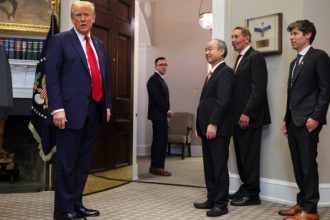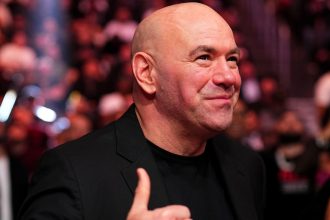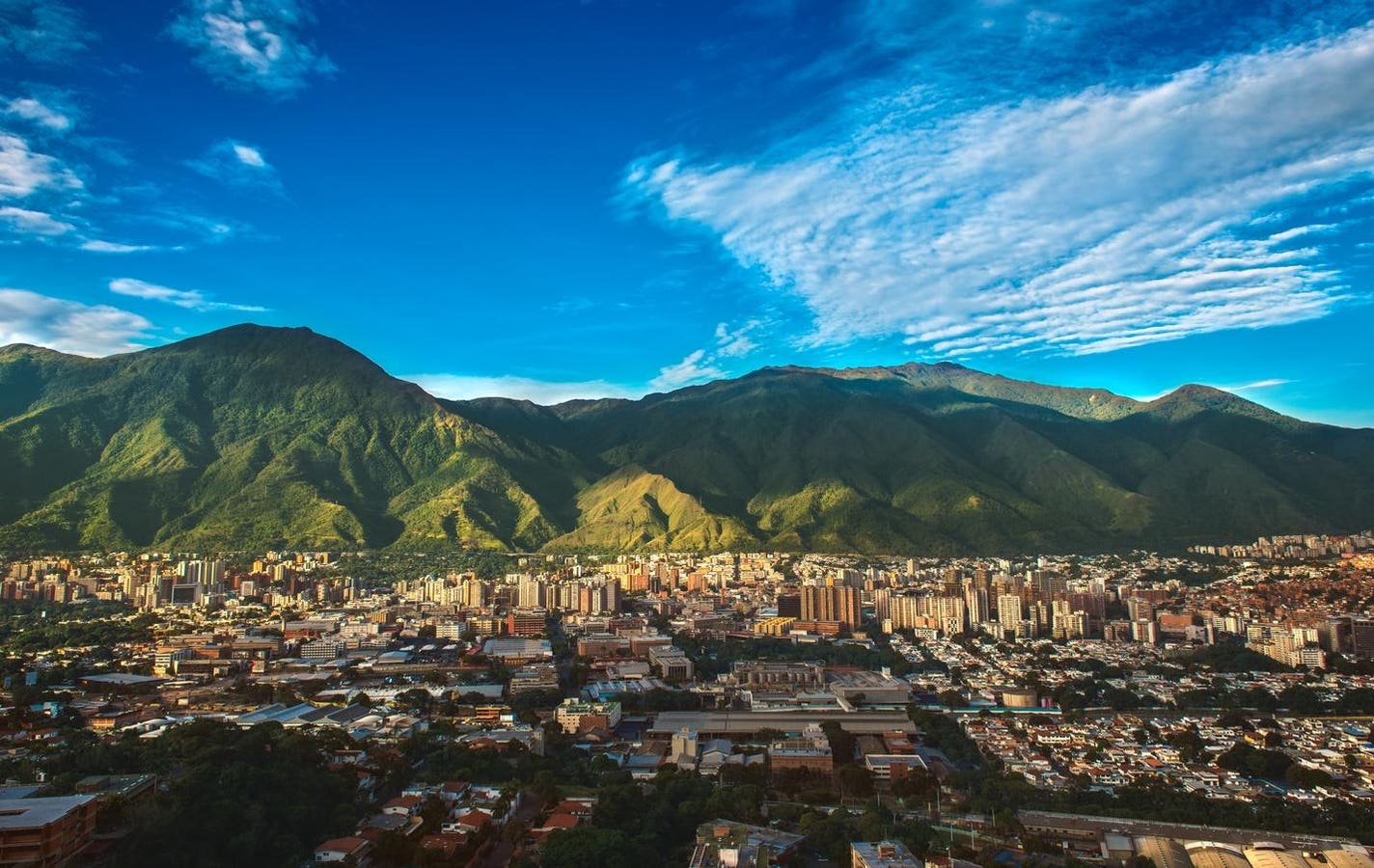Foreign policy commentators are arguing that the US should reverse sanctions suspensions on Venezuela. The Wall Street Journal and the Financial Times have simultaneously published editorials calling on the Biden administration to do so.
The US Treasury’s Office of Foreign Assets Control (OFAC) announced the new measures just on October 19th. The new policy was the result of 18 months of public and secret negotiations, involving Washington DC, the government of President Nicolas Maduro, and Venezuela’s main opposition parties.
To follow through with the editors’ naïve calls would give the impression that the Biden administration is easy to scare and did not know what it was getting into. It would mean reversing course just two weeks in. Rather, the tough posturing we see between the US and Venezuelan governments should be understood as negotiation tactics.
The suspensions included licences for oil exports, gold mining, and debt trading. They also enable deportation or repatriation flights from the US to Venezuela. The announcement was made a day after representatives of President Maduro and the opposition signed an agreement in Barbados. The government also released five political prisoners that night.
On October 22nd, the opposition went ahead with its internal primaries. The government did not intervene in the vote as was stipulated in Barbados; there were only minor incidents during the day. Frontrunner Maria Corina Machado won by a landslide, with 92% of the votes. However, she was already banned from running for public office by the comptroller general. Tensions with the government started already during the tally, which lasted for three days.
Now, the White House could go ahead with a “snapback”, and that is a possibility that we must all consider. If it does so, it will be to show that it is not bluffing—something empires must do with some frequency. However, US strategic interests are to at least maintain these licences, if not to expand them and gradually lift sanctions. To end a catastrophic Trump-administration policy.
A false dilemma
In the wake of the vote, ruling-party figures such as Jorge Rodriguez and Diosdado Cabello said that the primaries were fraudulent and that the organisers inflated the vote count. Attorney General Tarek William Saab launched an investigation into the vote. It is very likely that the primaries’ organisers destroyed the ballots and tallies, arguing that it would be to protect voters’ identities. The government also claims that by doing the vote without accountability, the opposition was not respecting the Barbados agreement.
The country’s supreme court has by now nullified the effects of the primaries. It is not clear whether the primaries will have to be repeated and under what conditions. Furthermore, there are fears that the vote’s organisers could be persecuted. These are the reasons many are giving to reintroduce the suspended sanctions.
Beyond the results of the primaries, there lies a key fact: all parties present in Barbados knew that Machado was not going to be allowed to run. The wording was deliberately ambiguous: All candidates are to be allowed to run, “while they fulfil the requirements established to participate in a presidential election consistent […] with Venezuelan law”.
Luis Vicente Leon, president of Datanalisis, argues that “while the ban could be challenged as unconstitutional, it was not part of the agreement between Caracas and Washington DC”. He also says that “it would be too simplistic to imagine that the dilemma is between letting Machado run for president and reversing the oil licenses.”
On the day of the Barbados agreement, Jorge Rodriguez was clear that “candidates who break the law” will not be allowed to run, referring to Machado. On the following day, the State Department nonetheless announced the sanctions suspensions. A source in the Venezuelan government said that Washington DC is trying to “blackmail Caracas with the threat of economic sanctions so that Machado can run for president”.
Machado is barred from holding public office for 15 years. At first in 2015, the ban was imposed for a year as she represented Panama in a regional parliament. This year, the ban was extended for calling for economic sanctions and foreign military intervention. The US State Department has said that it wants “a specific timeline and process for the expedited reinstatement of all candidates”.
The US State Department has declared that they are ready “to reverse steps we have taken”. However, in an Americas Quarterly podcast, Juan Gonzalez said that if there was some form of snapback, it would not be going back to the same as before. Gonzalez is the lead US negotiator, as Deputy Assistant Secretary of State for Western Hemisphere Affairs.
US suspends sanctions that backfire
In August, I argued that certain key the sanctions were backfiring on US interests, after speaking to experts and business leaders in the US and Venezuela. They were designed for a moment gone: the Trump administration expected an imminent overthrow of President Maduro. His government has proved resilient, weathering military threats, failed coups, mass unrest, and the collapse of the economy. Broad economic sanctions have proved to punish ordinary people but failed to trigger regime change.
With this in mind, the Biden administration has removed the sanctions that were the most cumbersome to US interests, focusing on four areas. The first, critical license gives six months for the US to buy Venezuelan oil—and importantly for Europe, makes it easier to buy natural gas.
The OFAC will also allow agreements with state-owned gold miner Minerven—this would reduce transactions in the black market, according to the press release. Though in the shadow of oil, mining has been an important industry in Venezuela with large potential. During the economic crisis, illegal mining activity flourished. The Maduro administration has been launching operations into remote areas of the country to tackle this problem, likely to prepare the ground for foreign investment.
The prohibition for US citizens to buy Venezuelan bonds on the secondary market has also been lifted. It was the focus of the August article. Republic and PDVSA debt was flowing out of the US into the hands of Europeans while also to opaque, non-Western funds. The OFAC said that lifting the trading ban “would have the positive effect of displacing nefarious players in this market, and with negligible financial benefit to the Venezuelan regime.”
The suspensions also allow for transactions related to the repatriation of Venezuelan citizens, involving state-owned airlines—we saw a deal on deportations on October 5th. On October 19th, we saw news of the first repatriation flight. Currently, there are no direct commercial flights between the US and Venezuela, though this could change shortly.
While sanctions relief is welcomed in Caracas, Washington DC had clear strategic interests to lift precisely these measures—while the rest remain in place. For example, current sanctions effectively impede the ability of the Venezuelan state and PDVSA to issue new debt in global markets. There is also a long blacklist of government officials and businessmen targeted for alleged corruption, drug trafficking, and human rights abuses.
The White House has even held back the execution of a “humanitarian agreement” that would give funds to education, healthcare, and infrastructure. It was agreed on in Mexico a year ago, again after tripartite negotiations, and would be supervised by the United Nations. When it comes down to the well-being of ordinary Venezuelans, Washington DC is taking its time. It was much faster, however, in granting Chevron a license to resume operations in Venezuela. Business trumps humanitarianism.
There is a glimmer of hope on this front, however. In early September, a leak to El País claimed that the funds were about to be released—almost a year after the handshake. A source involved said that the UN is almost ready to start with a third of the original funds, though there is no official information as to how it will proceed.
Who wins with sanctions?
Beyond US strategic interests lies another concern: what do Venezuelans think? The fact remains that while most may dislike—and hate—President Maduro, US sanctions are a failed and unpopular policy across most sectors. They have been called out for affecting the most vulnerable by members of opposition party Primero Justicia—whose leader is banned from running for president.
Venezuelan business organisations have also denounced the harmful effects of sanctions, which they say have constrained private activity. An executive, who did not wish to be named, said “Without the private sector flourishing, there is no funding for opposition parties, civil society, or the Catholic Church.” Who exactly wins with sanctions?
We could certainly expect a quick snapback with measures targeted at individuals or sectors that are not strategic to the US. For example, had the OFAC removed officials from its blacklist it could easily add them back. However, the US government focused entirely on lifting sanctions on itself.
The Biden administration needs Venezuelan oil on the market—and Europe the natural gas. The consequences of conflicts in Ukraine and Gaza are only reinforcing the strategic significance of Venezuelan oil. It wants to show it is acting on illegal immigration. And, beyond that, the need to bring a key commodity producer closer to the West, in a context of great power competition.
On the other hand, President Maduro and his administration have been slowly adapting to the new environment and would likely be able to survive in power longer despite sanctions. They already weathered the worst part of the storm, amid threats of military intervention, mass unrest and the first shock caused by sanctions. Oil production has slowly, yet visibly risen over the months since lows in early 2020.
We could wait until Venezuela becomes another Cuba. Sixty-four years of communism, sixty-three years of embargo. Although Venezuela has vast reserves of oil, gas, gold, bauxite, and other resources. Perhaps it could become another Iran—another success of US foreign policy. China shudders at the thought of having to buy Venezuelan crude at a steep discount.
Read the full article here





